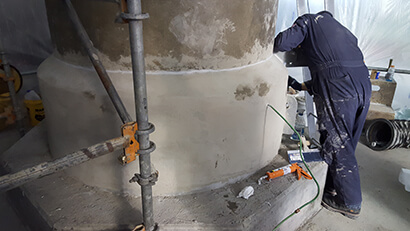
Unveiling the Champion of Heat Retention: Exploring the Longest-Lasting Metal
January 19, 2024When it comes to heat retention, selecting the right material is crucial. Whether you’re designing a thermally efficient cooking utensil, constructing a high-performance insulation system, or even exploring the realm of energy storage, understanding which metal retains heat the longest can significantly impact your project’s success. In this article, we delve into the world of metals and uncover the champion that excels in heat retention, providing you with valuable insights and practical knowledge.
- Conductivity and Specific Heat Capacity:
To determine a metal’s ability to retain heat, we must consider two key factors: thermal conductivity and specific heat capacity. Thermal conductivity refers to how well a material conducts heat, while specific heat capacity measures the amount of heat energy required to raise the temperature of a substance. Metals with low thermal conductivity and high specific heat capacity tend to retain heat for longer durations. - The Top Contenders:
a) Copper: Renowned for its excellent thermal conductivity, copper is often used in heat exchangers and electrical wiring. However, its high thermal conductivity means that it does not retain heat for extended periods.
b) Aluminum: Another commonly used metal, aluminum boasts good thermal conductivity and is lightweight. However, its specific heat capacity is relatively low, resulting in limited heat retention capabilities.
c) Stainless Steel: This versatile alloy combines durability, corrosion resistance, and moderate thermal conductivity. While stainless steel retains heat better than copper and aluminum, it still falls short of our quest for the longest-lasting heat retention.
- The Ultimate Champion: Cast Iron
After careful evaluation, cast iron emerges as the unrivaled champion in heat retention. This alloy of iron, carbon, and silicon possesses exceptional thermal properties, making it ideal for applications where prolonged heat retention is desired.
a) High Specific Heat Capacity: Cast iron’s high specific heat capacity allows it to absorb and store significant amounts of heat energy. This property enables it to retain heat for extended periods, making it a popular choice for cookware and heating systems.
b) Slow Heat Transfer: Cast iron’s relatively low thermal conductivity slows down the transfer of heat, further contributing to its exceptional heat retention capabilities. This characteristic ensures that the stored heat remains concentrated within the material for longer durations.
c) Seasoning and Enhanced Performance: Cast iron cookware develops a natural non-stick surface through a process called seasoning. This seasoning enhances heat retention and distribution, making cast iron pans and skillets a favorite among professional chefs and cooking enthusiasts.
- Practical Applications:
The remarkable heat retention properties of cast iron find applications in various fields:
a) Cooking: Cast iron cookware, such as Dutch ovens and griddles, excel in heat retention, ensuring even cooking and prolonged heat distribution. They are particularly suitable for slow-cooking methods and dishes that require consistent heat.
b) Thermal Insulation: Cast iron’s ability to retain heat makes it an excellent choice for thermal insulation systems. It can be used in building materials, such as cast iron panels or blocks, to regulate indoor temperatures and reduce energy consumption.
c) Energy Storage: The heat retention capabilities of cast iron can be harnessed in energy storage systems. By absorbing and storing excess heat during peak energy production, cast iron can release it gradually during periods of high demand, contributing to more efficient energy utilization.
Conclusion:
In the quest for the metal that retains heat the longest, cast iron emerges as the undisputed champion. Its high specific heat capacity, slow heat transfer, and seasoning-enhanced performance make it the go-to material for applications requiring prolonged heat retention. Whether you’re a chef, an engineer, or an energy enthusiast, understanding the unique properties of cast iron can unlock a world of possibilities in your endeavors. Embrace the power of cast iron and harness its exceptional heat retention capabilities for a wide range of practical applications.